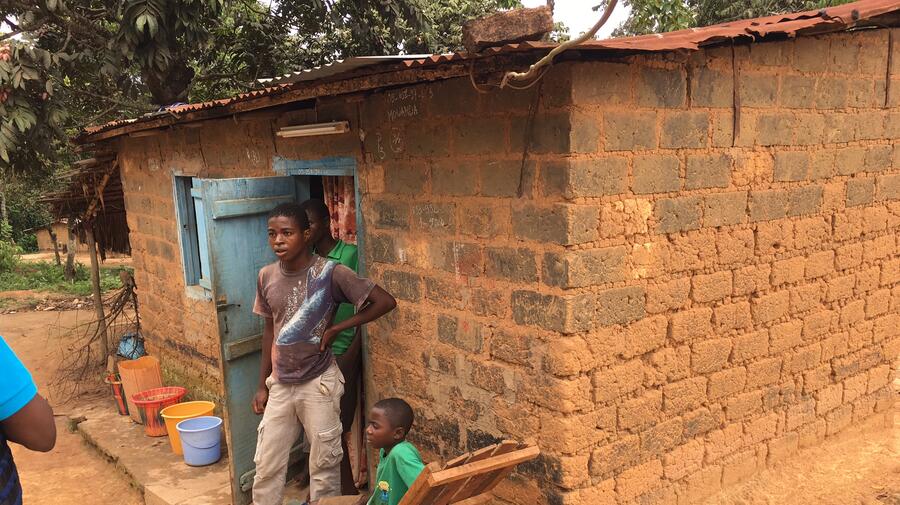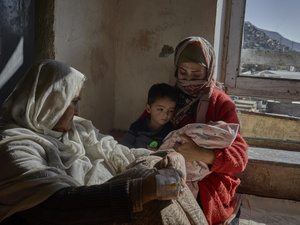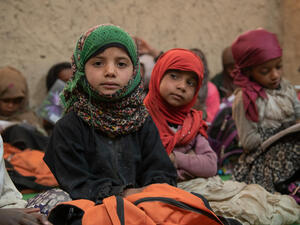Some 13,000 displaced by Ninja clashes in Republic of Congo
Some 13,000 displaced by Ninja clashes in Republic of Congo

Displaced youth in Mindouli, Pool region.
An escalating confrontation between the armed forces of the Republic of Congo (ROC) and suspected former rebels called the Ninjas has forcibly displaced thousands of people in southeastern Pool province and has disrupted farming in the country’s most fertile region. We are afraid some 13,000 displaced people soon may not have enough to eat as a result.
Residents of Pool province are also having trouble getting health care and education because so many state-employed medics and teachers have fled the area.
The government says some people have fled their villages since violence erupted in Brazzaville province last April. People have fled their homes in the neighbouring département (province) of Pool (11,307), bordering on Brazzaville, and Bouenza province (1,679).
The government blames the violence on former members of the Ninjas, who signed agreements with the government to stop fighting in 2003, after wars and insurgencies dating back to the 1990s.
In recent weeks, the violence is reported to have increased, including an attack on a military vehicle in the Mindouli district in the southeast of the country last weekend that left two people dead. The Ninjas were also blamed for an attack in early October on the important railway link from Brazzaville to the coast that left 14 people dead.
As a result of the latest clash, UN missions were suspended this week, but a UNHCR team was able to visit Pool late last month as part of a government-led mission. It found people’s living conditions had deteriorated since the last visit in June.
The team brought essential aid goods for 3,700 people – plastic sheeting, kitchen sets and soap. We are unlikely to be able to deliver more aid until the security situation improves.
The team visited Kinkala, Mindouli, Madingou, Loutete and Yamba and talked to local officials and to people who had fled their villages. Displaced people said 50 per cent of houses in some targeted villages were burned and they were scared to go back.
UNHCR staff said there was a palpable fear and a heavy military presence along the main road and in towns. Internally displaced people need almost everything: shelter, food and clean water in the country’s most import agricultural area.
Many displaced villagers said they worried about food because they had already missed one harvest and were unable to plant crops before the rains. UNHCR fears the displaced people will soon not have enough to eat. Attacks on bridges, road and rail links have affected food and trade flows, and some fear that food prices could rise across the country.
Some 6,000 of the displaced people sought refuge in Kinkala, the capital of Pool, which is under curfew. Our team saw very few men – only women, children and older people. Some children are suffering from trauma.
People are living with families, on church grounds, in public buildings or in makeshift sites. Many fled their homes with nothing and are sleeping on concrete or dirt floors without mats. These places are overcrowded and do not have adequate latrines or washing facilities.
At the same time as it is hit by internal struggles, the Republic of Congo is home to some 55,000 refugees, most of them from Central African Republic, the Democratic Republic of the Congo, Rwanda and Angola.
For more information on this topic, please contact:
- In Geneva, Leo Dobbs, [email protected], +41 79 883 6347
- In DRC, Andreas Kirchhof, [email protected], +243 817 009 484









